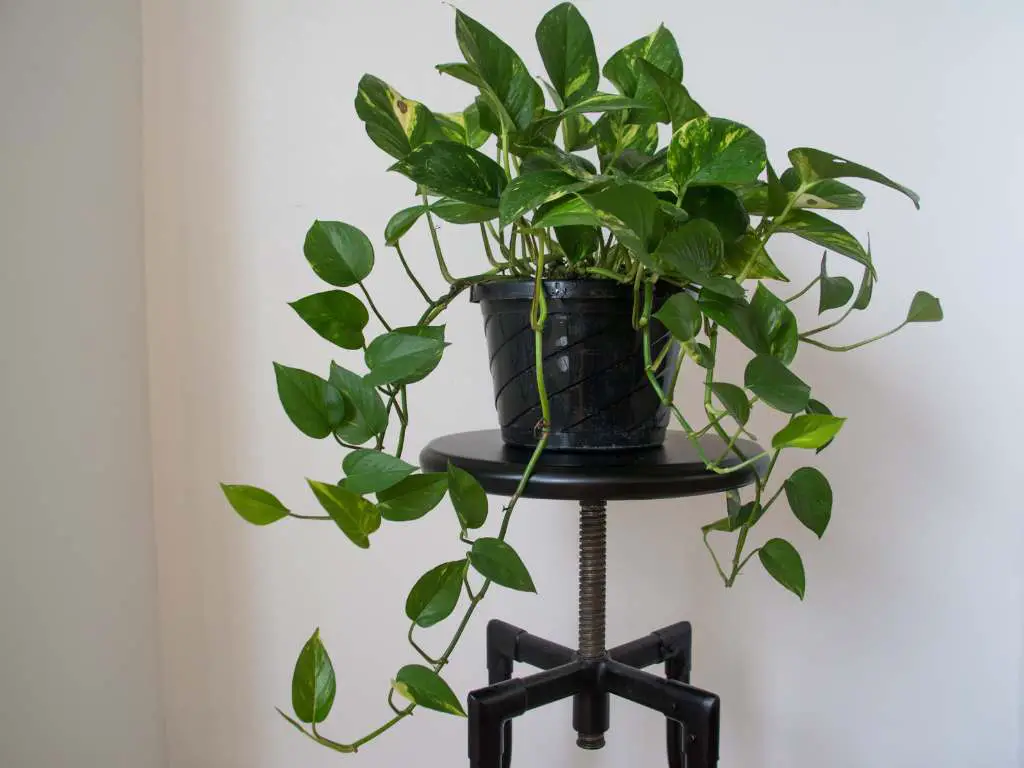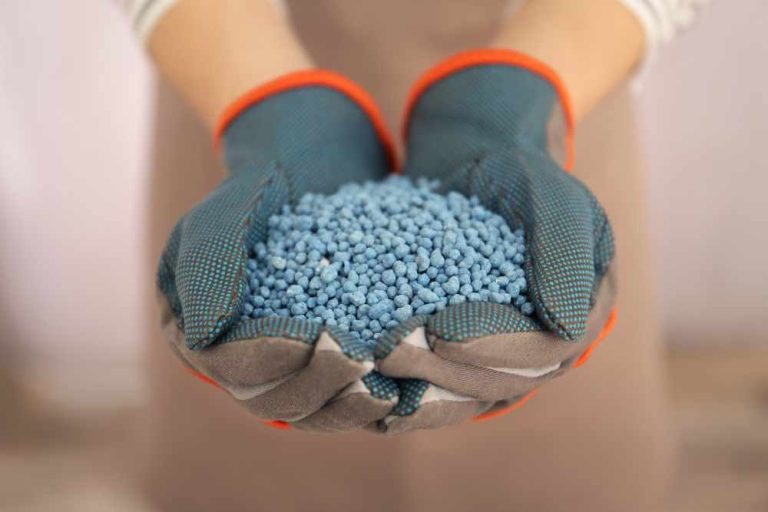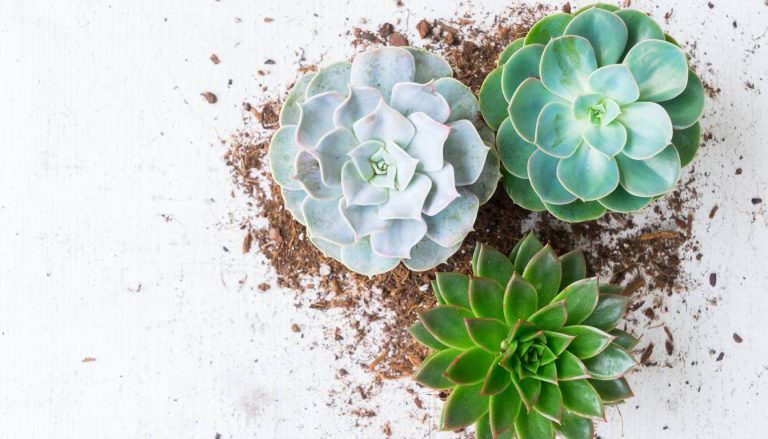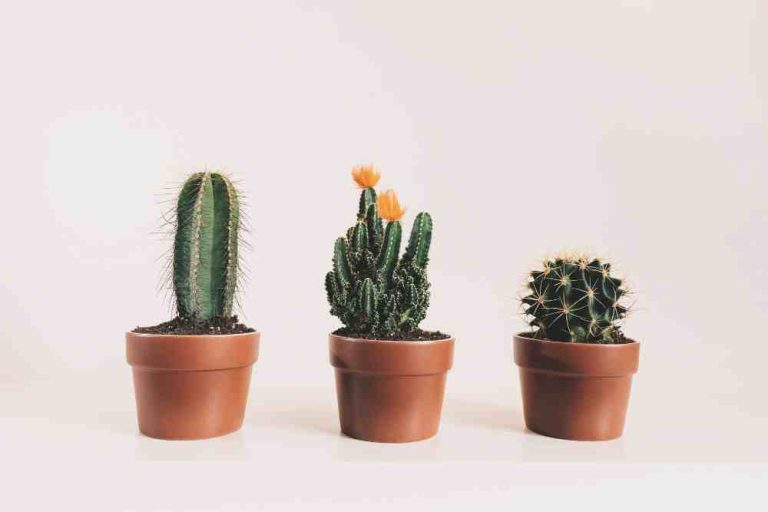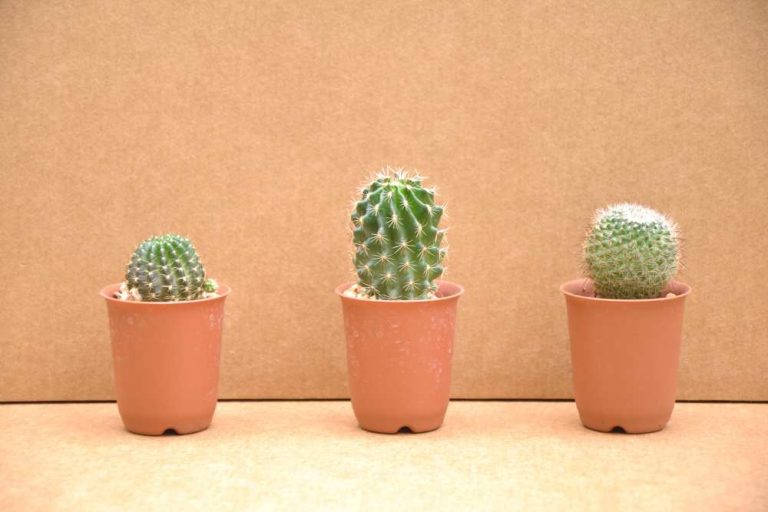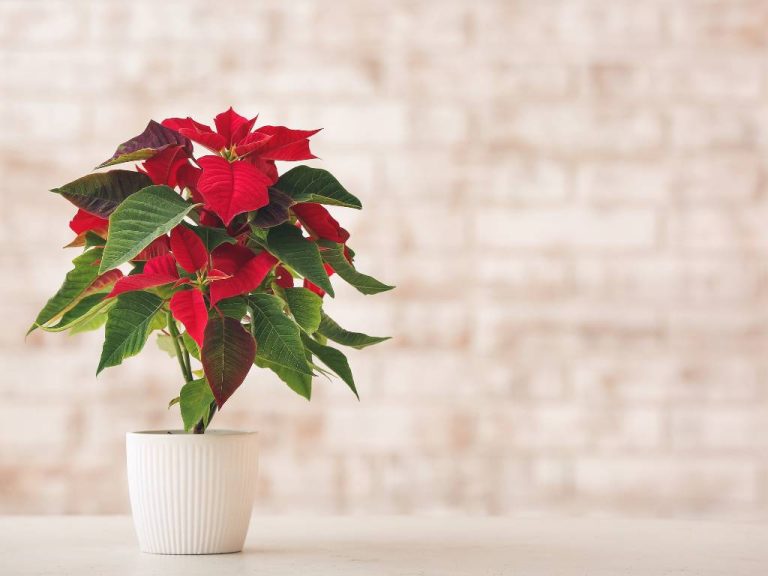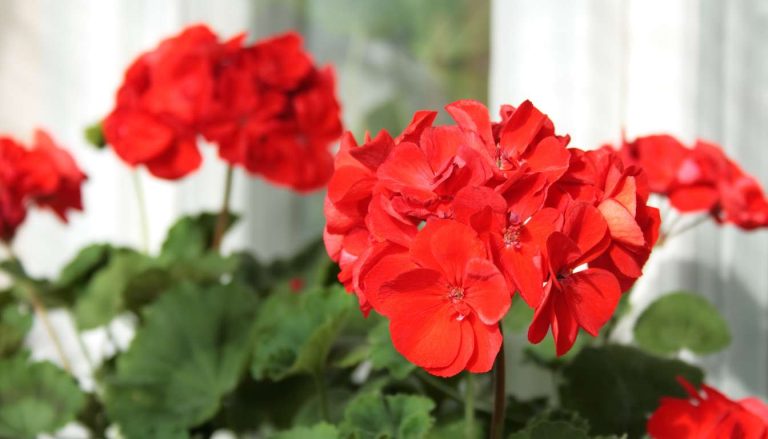What is the Best Plant Food for Indoor Plants? Let’s Find Out!
Indoor plants are a beautiful addition to any home or office space, but they require the right nutrition to thrive and grow. That’s where plant food comes in. Plant food, also known as fertilizer, provides essential nutrients that indoor plants need to stay healthy and vibrant. But with so many options available, how do you choose the best plant food for your indoor plants? Let’s explore the different types and find out what works best!
Key Takeaways:
- Indoor plants need plant food to thrive and grow.
- Fertilizers provide essential nutrients like nitrogen, phosphorus, and potassium.
- There are different types of plant food available, including organic, liquid, granular, and spike.
- Choose a balanced fertilizer with low NPK numbers for indoor plants.
- Consider organic options whenever possible for a more sustainable approach.
Best Organic Plant Food for Indoor Plants
When it comes to nourishing your indoor plants, opting for organic plant food is a wise choice. Organic plant food offers a natural and safe way to provide essential nutrients to your plants, promoting their growth and overall health. One highly recommended organic plant food for indoor plants is Espoma Organic Indoor Houseplant Food.

With its easy-to-use liquid formula, Espoma Organic Indoor Houseplant Food ensures that your plants receive a balanced blend of essential nutrients. This organic plant food is formulated with organic ingredients that are not only effective in nourishing your plants but also safe for both your plants and pets. Its 2-2-2 ratio of nitrogen, phosphorus, and potassium makes it suitable for a wide range of houseplants.
Why Choose Espoma Organic Indoor Houseplant Food?
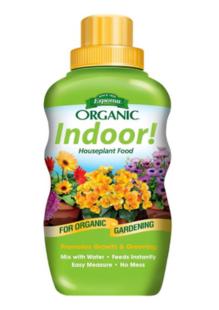
Aside from its organic composition, Espoma Organic Indoor Houseplant Food also contains beneficial microbes that improve the quality of the soil over time.
This means that not only will your plants receive the immediate nutrients they need, but the soil will also become richer and more fertile, promoting long-term plant growth and vitality. Reapplication of this organic plant food is recommended every two to four weeks, ensuring a continuous supply of nutrients for your indoor plants.
Best Budget Plant Food for Indoor Plants
When it comes to caring for indoor plants, finding a budget-friendly plant food option is essential. Thankfully, there are affordable plant food choices available that provide the necessary nutrients to promote healthy growth without breaking the bank.
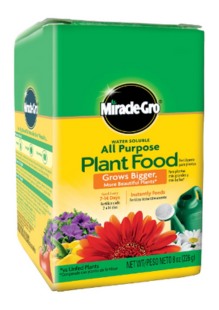
Miracle-Gro Water Soluble All Purpose Plant Food is a top pick for those on a budget. This cost-effective liquid fertilizer can be used on a variety of indoor plants, ranging from houseplants to flowers, vegetables, and trees. With its balanced blend of nitrogen, phosphorus, and potassium (24-8-16 ratio), it helps to stimulate growth and enhance overall plant health.
This budget plant food is easy to use, with just half a teaspoon mixed with water for houseplants. To ensure the best results, it is recommended to start with half-strength solutions and gradually increase the dosage. Regular application every one to two weeks will ensure that your indoor plants receive the nutrients they need to thrive.
ood?
Choosing a budget-friendly plant food allows you to provide essential nutrients to your indoor plants without compromising on quality. While premium plant food options may offer additional benefits, such as organic ingredients or specialized formulas, budget plant food can still deliver the necessary nutrients for healthy plant growth.
By opting for affordable plant food, you can care for your indoor plants without straining your wallet. This not only makes it more accessible for plant enthusiasts on a tight budget but also encourages more individuals to embark on the journey of indoor gardening.
When selecting a budget plant food, it is important to consider the specific nutritional needs of your indoor plants and choose a formula that provides a balanced blend of essential macronutrients. By doing so, you can ensure that your indoor plants receive the right amount of nutrients for optimal growth and vitality.
Best Organic Liquid Plant Food for Indoor Plants
When it comes to feeding your indoor plants, organic options are often the preferred choice for many plant enthusiasts. One excellent choice is Bloom City CleanKelp Fertilizer Supplement. Made from organic seaweed and kelp, this liquid plant food offers numerous benefits for your indoor plants.
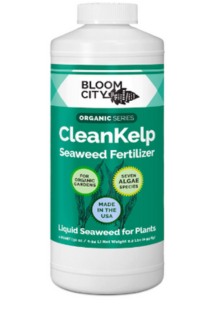
Bloom City CleanKelp Fertilizer Supplement is not only natural and environmentally friendly, but it also promotes strong root and stem health in your plants. By boosting their overall health, this organic liquid plant food helps your indoor plants become more resistant to stressors such as disease and insects.
This liquid formula can be applied directly to the soil or even sprayed on the leaves, ensuring that your plants receive the essential nutrients they need for optimal growth and development. While it does have a strong seaweed smell, the benefits of using this organic and sustainable plant food far outweigh the slight odor.
Benefits of Using Organic Liquid Plant Food
Choosing an organic liquid plant food for your indoor plants has several advantages. First, liquid plant food is easily absorbed by the plant’s roots, allowing for efficient nutrient absorption. This ensures that your plants receive the necessary macronutrients and micronutrients they need for healthy growth.
Additionally, organic plant food provides a balanced blend of essential nutrients, including nitrogen, phosphorus, and potassium. These nutrients promote overall plant health, support root development, and encourage vibrant foliage and blooms. With organic liquid plant food, you can cultivate healthy, thriving indoor plants that bring beauty and joy to your home.
Best Spike Plant Food for Indoor Plants
When it comes to feeding our beloved indoor plants, convenience is key. That’s where spike plant food comes in. These easy-to-use fertilizers are designed to be inserted directly into the soil, where they gradually release nutrients over time. If you’re looking for the best spike plant food for your indoor plants, we’ve got you covered.
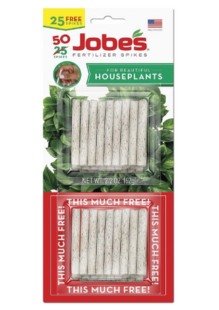
One top pick is Jobe’s Houseplant Fertilizer Food Spikes. These granule spikes provide a balanced blend of nitrogen, phosphorus, and potassium, essential nutrients for healthy plant growth. With a 13-4-5 ratio, they are suitable for both foliage and flowering houseplants. Simply insert the spikes into the soil and let them do their magic.
While spike plant food is convenient, it’s important not to overfeed your plants. Too much fertilizer can lead to wilting and nutrient burn. Follow the instructions carefully and only use the recommended amount. Remember, a little goes a long way when it comes to plant food spikes.
Read – Best Fertilizers For Flowers
Considerations for Choosing Spike Plant Food
When selecting the best spike plant food for your indoor plants, there are a few factors to consider.
Spike plant food is a convenient and easy-to-use option for feeding your indoor plants. Jobe’s Houseplant Fertilizer Food Spikes are a top choice, providing a balanced blend of nutrients for healthy plant growth. Just remember to follow the instructions and not overfeed your plants. Happy gardening!
Best Granular Plant Food for Indoor Plants
When it comes to feeding your indoor plants, granular plant food offers a convenient and long-lasting solution. One of the top choices in this category is Burpee All Purpose Granular Plant Food. This slow-release fertilizer provides nutrients to your plants for up to three months, ensuring they receive a consistent supply of essential macronutrients and micronutrients.
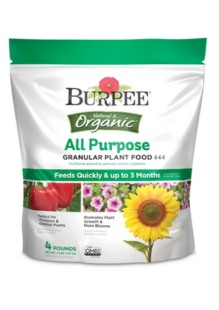
With its balanced blend of nitrogen, phosphorus, and potassium, Burpee All Purpose Granular Plant Food promotes overall plant health and growth. Whether you have foliage plants or flowering varieties, this granular plant food is suitable for a wide range of indoor plants. It is important to read and follow the application instructions carefully to avoid overfeeding your plants, as this can lead to nutrient burn and other issues.
What sets granular plant food apart from other types is its slow-release formulation. As the granules dissolve gradually, nutrients are released over time, providing a consistent supply for your plants’ needs. This makes granular plant food a convenient option, as you don’t have to worry about frequent application or remembering to feed your plants regularly.
When choosing the best granular plant food for your indoor plants, consider the specific needs of your plants, such as their growth stage and nutrient requirements. Additionally, it is important to understand that granular plant food should be used in conjunction with other fertilizers to ensure a complete and balanced nutrient profile for your plants.
Read – Granular Fertilizer For Plants
Plant Food and Fertilizer for Indoor Plants
When it comes to nourishing your indoor plants, it’s important to understand the difference between plant food and fertilizer. Plant food is a term often used to describe a variety of products, but not all of them are complete fertilizers. Many are actually supplements that should be used in conjunction with a balanced fertilizer to provide essential minerals. On the other hand, fertilizers are specifically formulated to provide the macronutrients and micronutrients necessary for plant growth.
One key distinction to consider is the choice between organic and chemical plant food. Organic plant food is derived from composted plant material and is preferred by many indoor gardeners. It promotes healthy growth and helps maintain strong root systems.
Chemical plant food is derived from inorganic sources and can provide a quick boost of nutrients. However, it is important to use chemical fertilizers with caution and follow the application instructions to avoid overfeeding your plants.
Indoor plants have specific nutritional needs, and providing the right balance of nutrients is essential for their well-being. Nitrogen (N), phosphorus (P), and potassium (K) are the primary macronutrients that indoor plants require.
Nitrogen promotes leaf and stem growth, phosphorus supports root development and flowering, and potassium helps with overall plant health and disease resistance. It’s important to choose a plant food or fertilizer that provides these essential nutrients in the proper ratios to meet the needs of your specific indoor plants.
Liquid Plant Food for Indoor Plants: Nutritional Needs and Benefits
Liquid plant food is a fantastic choice for nourishing your indoor plants and supporting their overall health and growth. One of the major benefits of liquid plant food is its high rate of absorption by the plant’s roots. This means that the essential nutrients, such as nitrogen, phosphorus, and potassium, are readily available for the plants to uptake and utilize effectively.
The concentrated nature of liquid plant food makes it more efficient than plain water when it comes to providing the necessary nutrients. With a balanced blend of essential minerals, it ensures that your indoor plants receive the optimal nutrition they need to thrive. Regularly using liquid plant food as part of your plant care routine can lead to stronger, greener foliage, vibrant blooms, and an overall healthier and more robust plant.
When choosing a liquid plant food, look for one that meets the specific nutritional needs of your indoor plants. A well-formulated liquid plant food will provide not only the essential macronutrients but also micronutrients that are crucial for their growth. Remember to follow the manufacturer’s instructions for application rates and frequency to prevent overfeeding, which can be harmful to your plants.
FAQ
What is the best plant food for indoor plants?
The best plant food for indoor plants depends on your specific needs and preferences. However, some popular options include Espoma Organic Indoor Houseplant Food, Miracle-Gro Water Soluble All Purpose Plant Food, Bloom City CleanKelp Fertilizer Supplement, Jobe’s Houseplant Fertilizer Food Spikes, and Burpee All Purpose Granular Plant Food.
Is organic plant food better for indoor plants?
Organic plant food is a preferred choice for indoor plants as it promotes healthy and strong growth. It is made from composted plant material and provides essential macronutrients and micronutrients that plants need to thrive.
How often should I apply plant food to my indoor plants?
The frequency of plant food application depends on the specific product and the needs of your plants. Generally, it is recommended to reapply plant food every two to four weeks for optimal results.
Are there different types of plant food for indoor plants?
Yes, there are different types of plant food available for indoor plants. Some common types include liquid plant food, granule plant food, slow-release plant food, and spike plant food. Each type has its own advantages and considerations.
Can I use plant food on all types of indoor plants?
Yes, plant food can be used on a wide range of indoor plants, including houseplants, flowers, vegetables, and trees. However, it is important to read and follow the specific instructions for each product to ensure safe and effective application.
What is the difference between organic and chemical plant food?
Organic plant food is made from composted plant material, while chemical plant food is derived from inorganic sources. Organic options are preferred for indoor plants as they promote healthy and strong growth.
How does liquid plant food work for indoor plants?
Liquid plant food is easily absorbed by the plant’s roots and provides essential nutrients like nitrogen, phosphorus, and potassium, as well as other minerals necessary for growth. It is important to choose a liquid plant food that offers a balanced blend of nutrients and to use it regularly to support plant health and growth.
How do plant food spikes work for indoor plants?
Plant food spikes are inserted into the soil and gradually release nutrients over time. They provide a balanced blend of nitrogen, phosphorus, and potassium and are a convenient option for indoor plants. Care should be taken not to overfeed plants with spikes, as it can lead to wilting and nutrient burn.
How long does granular plant food last for indoor plants?
Granular plant food slowly dissolves and provides nutrients for up to three months. It is a long-lasting option that promotes overall plant health and growth. It is important to follow the application instructions and not overfeed plants with this type of fertilizer.
Can I use plant food as the sole source of nutrients for my indoor plants?
Not everything labeled as plant food is a complete fertilizer. Many products are supplements and should be used in conjunction with a balanced fertilizer to provide essential minerals. It is important to consider the existing nutrients in the potting soil and choose a plant food that complements the needs of your indoor plants.
- 20+ Chic Boho Bedroom Ideas for a Cozy and Stylish Retreat - June 20, 2024
- 12+ Modern Boho Living Room Ideas to Create a Unique Oasis - June 10, 2024
- 10 Stunning Canopy Bed Ideas for a Dreamy Escape - May 16, 2024

